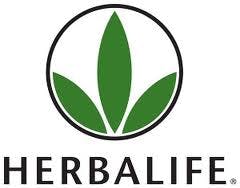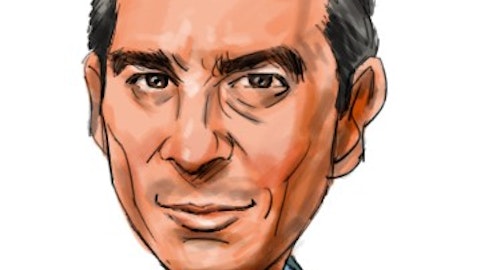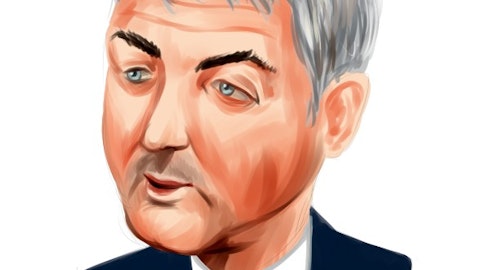Alexander is a member of The Motley Fool Blog Network — entries represent the personal opinion of the blogger and are not formally edited.
Herbalife Ltd. (NYSE:HLF) has been receiving a lot of scrutiny from investors lately. This is partially driven by the declining stock value, due in part to investor Bill Ackman’s billion dollar short against the stock. I believe there are some key issues with Bill Ackman’s bet against Herbalife Ltd. (NYSE:HLF).
Some pyramid schemes are sustainable
One of the favorite arguments a Multi-Level-Marketing (MLM) promoter will use to defend the pyramid is to point out the other pyramids that exist in the world, and that if you work hard enough you can rise to the top and become the CEO of a company. To an extent, the MLM promoters is stating a truism: Almost everything in the world is built on a pyramid scheme.
Long-run history of MLMs
Source: YCharts
Based on the above chart, you’re probably thinking that this is going to be a extremely complicated lecture, but it certainly isn’t. Tupperware Brands Corporation (NYSE:TUP), USANA Health Sciences, Inc. (NYSE:USNA), and Nu Skin Enterprises, Inc. (NYSE:NUS) have all been able to grow earnings per share for the past eight years. The compared companies all have one thing in common: they are all MLM-based sales organizations.
Bill Ackman may be right in that MLM schemes may eventually fail to generate revenue or earnings growth due to how they are structured. In fact, Avon Products, Inc. (NYSE:AVP) is a recent example of decelerating and eventually declining earnings growth. But when you think about it, how long did it take for Avon’s multi-level-marketing scheme to turn up negative earnings growth? From 1990 until 2010, two full decades, Avon grew its earnings continuously, before it started to report negative and declining earnings per share figures.
So anyone who wants to buck the trend by shorting the stock of an MLM company may be surprised by the length of time it may take for earnings to decline.

Source: YCharts
This is a chart of Avon Products, Inc. (NYSE:AVP) earnings per share. The company’s management team was unable to generate revenue growth as its product line became rather stale. That being the case, the company’s management team hopes to turn the company’s earnings around with plans to cut costs aggressively in order to generate a profit. As a result, the stock has been able to stage a serious comeback. The stock has rallied from $14.00 per share to $22.79 per share recently. Analysts on a consensus basis anticipate the company to report earnings per share figures of around $1.03 for the current fiscal year, which is substantial growth from the loss of $0.10 per share in 2012. Since analysts anticipate earnings to grow by around 1,130%, the stock has been able to rally by 40% from the beginning of the year.
Herbalife earnings and financials

Analysts on a consensus basis were anticipating earnings of around $1.06 a share. Herbalife Ltd. (NYSE:HLF) beat analyst estimates for the quarter and was able to offer a full year earnings growth outlook of $4.60 to $4.80 per share. Analysts on a consensus basis were expecting earnings per share of $4.66 for the full year. It is likely that analysts will raise their EPS forecasts for the full-year to $4.70 on a consensus basis. This may imply that Herbalife Ltd. (NYSE:HLF) is undervalued as the company is trading at a 9.2 earnings multiple.
How to keep exposure in MLMs
Since Herbalife is so contentious, with Bill Ackman and Carl Icahn shooting bazookas at each other, it is better investing into an alternative like Nu Skin. Nu Skin has a smaller short interest, at 15.49% than Herbalife’s 32.20%.
Nu Skin trades at a 14.7 earnings multiple. The earnings multiple Nu Skin trades at is higher than Herbalife Ltd. (NYSE:HLF), but Nu Skin isn’t under a short attack by a hedge fund. Analysts on a consensus basis expect Nu Skin to generate earnings growth of 12.40% on average for the next 5 years.
Nu Skin Enterprises, Inc. (NYSE:NUS) uses direct selling because it is difficult to talk to consumers about genetic skin issues. The science behind it is arcane (I have been to a Nu Skin event), and for the product to sell, the product needs warm rather than cold sales leads. Direct selling can be an appropriate sales strategy depending on the product. In both Nu Skin and Herbalife’s case, the strategy seems to be working.
Conclusion
Bill Ackman may have shorted Herbalife Ltd. (NYSE:HLF) while the company is still in its rapid growth phase, and it may lose Bill Ackman a lot of money if he holds onto the position for too long. In other words, it is too early to determine deceleration in demand, and since that is the case, the stock should not be shorted, and is a bargain at these levels.
The article Herbalife Short Insanely Stupid: Don’t Join In originally appeared on Fool.com and is written by Alexander Cho.
Copyright © 1995 – 2013 The Motley Fool, LLC. All rights reserved. The Motley Fool has a disclosure policy.





